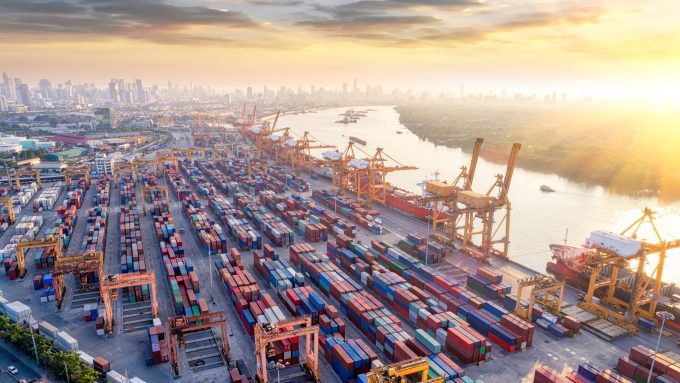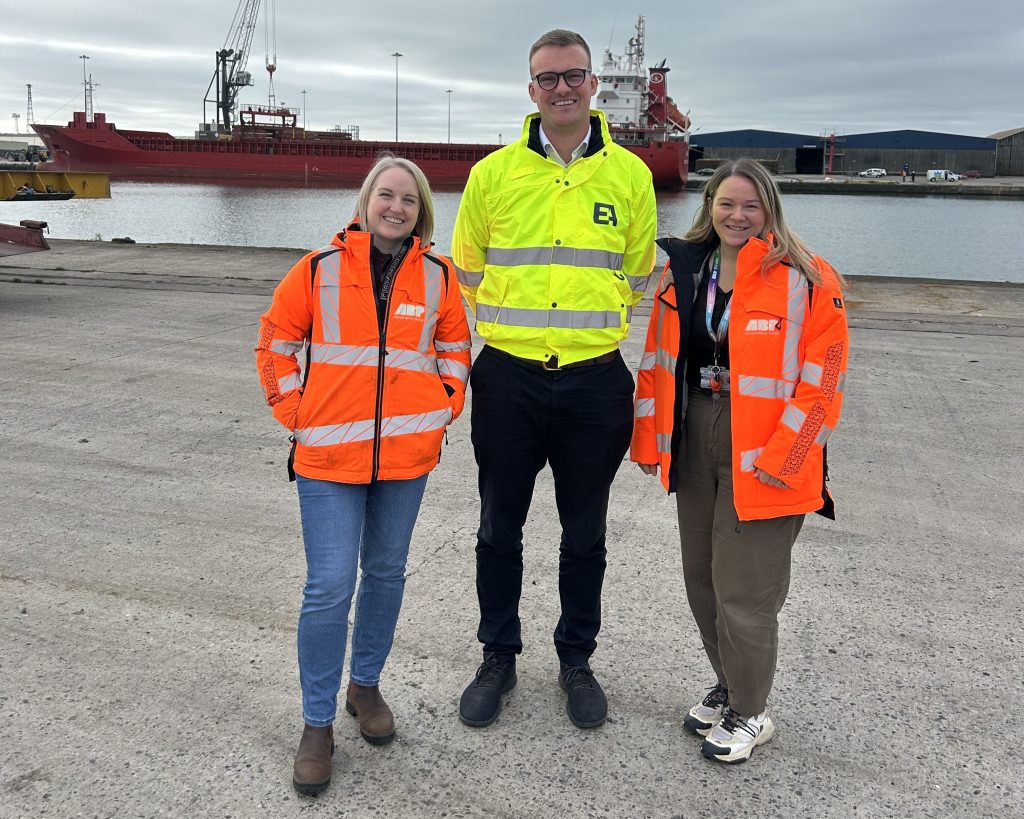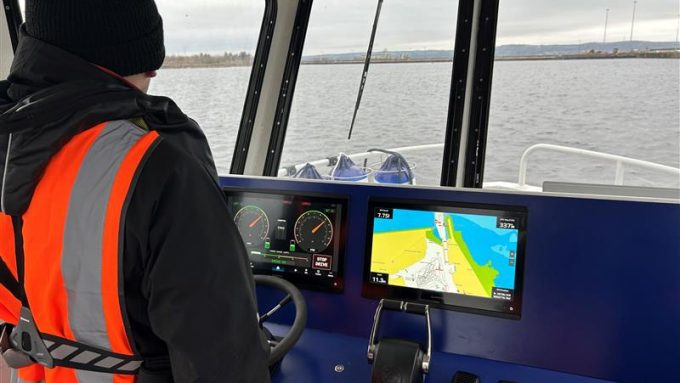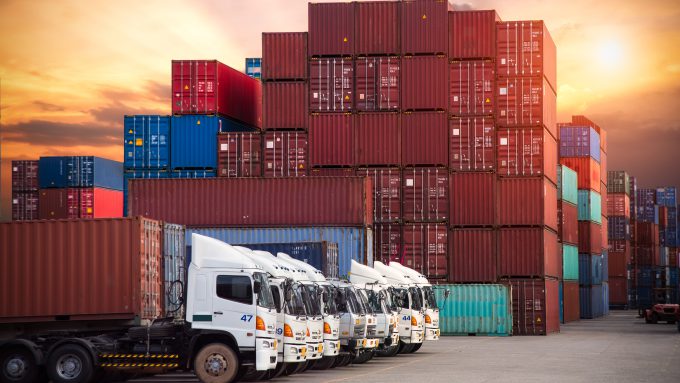
Tech firm making ports more efficient charts growth

Optimising ports by deploying the right people with the right skills at the right time to carry out port logistics operations is the aim of a new intelligent scheduling platform called Athena, developed by Ensemble Analytics – an SME supported on three accelerator programmes by Connected Places Catapult.
This month, a contract was signed to deploy the technology – which generates optimal workforce schedules in seconds – for Associated British Ports (ABP) at Newport in South Wales. ABP trialled Ensemble’s technology last year as part of the Freight Innovation Fund programme, run by Connected Places Catapult on behalf of the Department for Transport.
“The Freight Innovation Fund was amazing in terms of how quickly it enabled us to iterate and improve the product, and get it to a position where it’s being used today by ABP.”Cato Davies, co-founder of Ensemble Analytics
“The programme gave us the opportunity to demonstrate to our client that we have an amazing opportunity to build something together.”
Two further Catapult-led programmes which previously helped Ensemble to refine its product and progress towards commercialisation are the Transport Accelerator: Maritime, and the Transport Research & Innovation Grants (TRIG) programme.
Before the end of the financial year, Ensemble expects to generate £400,000 in revenue and increase its headcount by 50%.
“Company staff increased from four to 10 since we started working with the Catapult, and we're expecting to grow that number further in the next three months to around 15 staff,” says Cato.
“A lot of that has been helped by the opportunities we got because of the Catapult, both in terms of funding and getting exposure to industry partners who want to work with start-ups.
“Connected Places Catapult has been great over the last three years; helping us on our journey to the stage we are at now; where we have a product that works well, is achieving amazing results, and our client likes,” he adds. “But that isn’t to say we have finished building it – we have plans to improve it in the future.”

Allocating resources effectively
Ensemble’s workforce scheduling platform Athena uses machine learning to allocate labour resource to exactly where it is needed in ports; which are dynamic, ever changing work environments.
“One of the most obvious challenges for ports involves deploying people, which can account for two thirds of a site’s operational costs,” Cato explains. “Work contracts are complicated, and there are many health and safety considerations – such as working time directives and rota patterns to ensure people do not get tired.”
People in ports are often multi-skilled, he adds, with some able to operate 10 different pieces of equipment. Trying to work out who the best people are to employ on a given day, for instance, “can be a complex puzzle”.
Knowing exactly when workers are needed can be difficult at present too. “Vessels can arrive early or arrive late, and the need for different equipment to be deployed is constantly changing,” he adds. “We therefore decided that an industry-wide solution for workforce management was needed.
“It's very expensive having people sitting around with nothing to do, but more importantly it would be worse having a vessel in berth and no-one to do the work. Turning around a vessel late would mean clients miss out on commercial opportunities.”
Aside from financial and compliance benefits, Cato says the platform can improve employee engagement; helping staff to get a better understanding of when they will be needed on site, and which tasks they will be expected to carry out; helping them to better plan their personal finances and know when best to ask for overtime.
Helped by three programmes
Ensemble Analytics first started working with Connected Places Catapult three years ago, when it joined the Maritime Accelerator programme and teamed up with DP World and the Port of Tyne to validate its offer of a workforce planning system. It then joined the TRIG programme to refine its technical capability and build a working prototype, before being accepted on to the Freight Innovation Fund in collaboration with Associated British Ports and the Port of Bristol, which led to the contract at Newport.
“We're hoping to keep growing in the UK by getting the system into five or six more ports in the next year, and will be connecting with a few operators abroad who are interested in what we are doing,” says Cato. The company has also started working in rail terminals and warehouses in Newport, and is keen to explore further opportunities. “The Catapult would be one of the first places for us to turn to and ask if there is anyone they can put us in touch with,” Cato adds.
He says that innovating is not just about introducing a new product, but changing a company’s culture. “It’s about really understanding why people want something, how it will change how they do their day-to-day work, and getting people on board to believe in what you are doing.”
And companies are unlikely to change their operational practices for a small step-change in terms of improving workforce management, he says. “They want something that is going to radically change what they do, and really improve how they can work in the future. What we offer can do that.”
Read more about the Freight Innovation Fund, the Transport Accelerator: Maritime, and the Transport Research & Innovation Grants programme.





